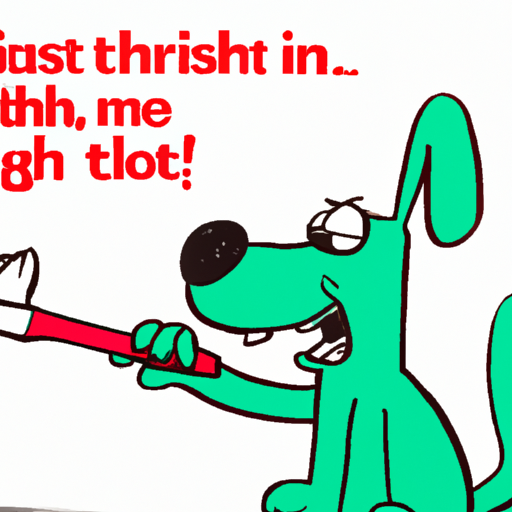Understanding The Causes of Bad Breath in Dogs
Bad breath in dogs, medically known as halitosis, is more than just an unpleasant smell. It could be a sign of underlying health issues. Here are some possible causes:
- Dental Issues: Just like humans, dogs can suffer from plaque buildup, gum disease, or tooth decay, all of which can cause bad breath.
- Diet: Certain foods might not agree with your dog’s system, resulting in bad breath.
- Digestive Problems: Issues with the digestive tract can also cause bad breath in dogs.
- Underlying Health Conditions: Conditions like diabetes, kidney disease, or liver problems can result in bad breath.
Steps to Eliminate Bad Breath in Dogs
Secondly, let’s look at some practical steps you can take to help eliminate your dog’s bad breath.
- Regular Dental Check-ups: Just like you, your dog needs regular dental check-ups. This can help identify any dental issues early on.
- Adequate Oral Hygiene: Brush your dog’s teeth regularly with canine toothpaste and provide dental chews for added oral health.
- Balanced Diet: Ensure your dog is eating a balanced diet that is appropriate for its age, breed, and health condition.
- Regular Vet Visits: Regular vet visits can help identify any underlying health issues that could be causing bad breath.
Recommended Dental Products For Dogs
Here are some recommended dental products for dogs:
| Product | Description |
|---|---|
| Canine Toothpaste | Specially formulated for dogs, it helps reduce plaque and tartar. |
| Dental Chews | These help clean your dog’s teeth and freshen their breath as they chew. |
| Dental Toys | These toys are designed to clean your dog’s teeth as they play. |
Dietary Changes to Improve Dog’s Breath
You might need to make some dietary changes to improve your dog’s breath. These include:
- Protein Sources: High-quality, easily digestible proteins can help improve your dog’s breath.
- Avoid Foods Known to Cause Bad Breath: Certain foods like garlic and onions can cause bad breath in dogs.
- Fresh Water: Always ensure your dog has access to fresh, clean water.
Frequently Asked Questions
Q: How often should I brush my dog’s teeth?
A: It varies depending on the dog, but generally, it’s recommended to brush your dog’s teeth at least once a week.
Q: Can I use human toothpaste to brush my dog’s teeth?
A: No, human toothpaste can be toxic to dogs. Always use a toothpaste formulated for dogs.
Q: Are dental chews enough to maintain my dog’s oral health?
A: While dental chews can help, they should not replace regular brushing and dental check-ups.
In conclusion, taking care of your dog’s oral health is a crucial part of pet ownership. With regular care and vigilance, you can help prevent bad breath and ensure your dog remains happy and healthy.



